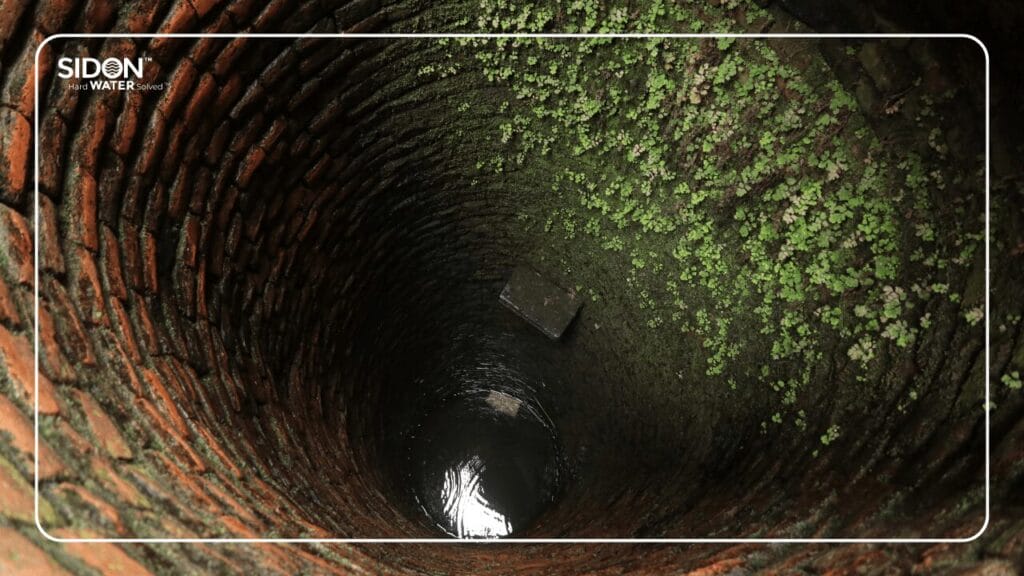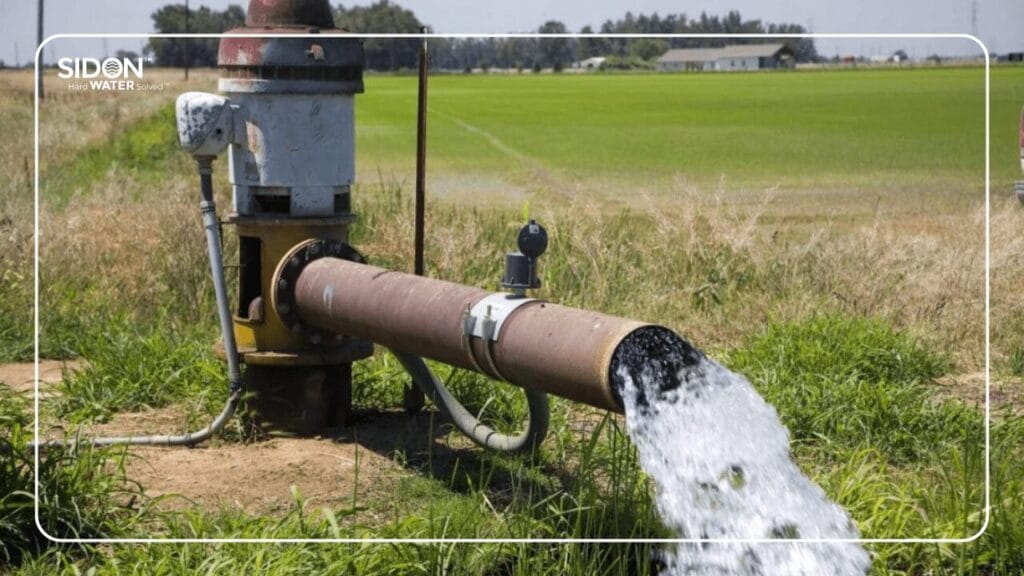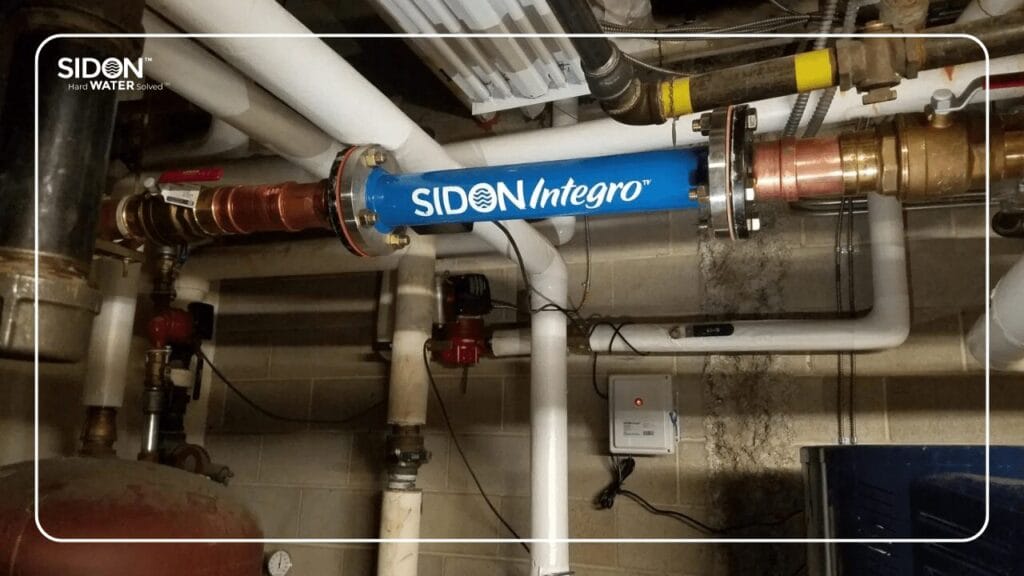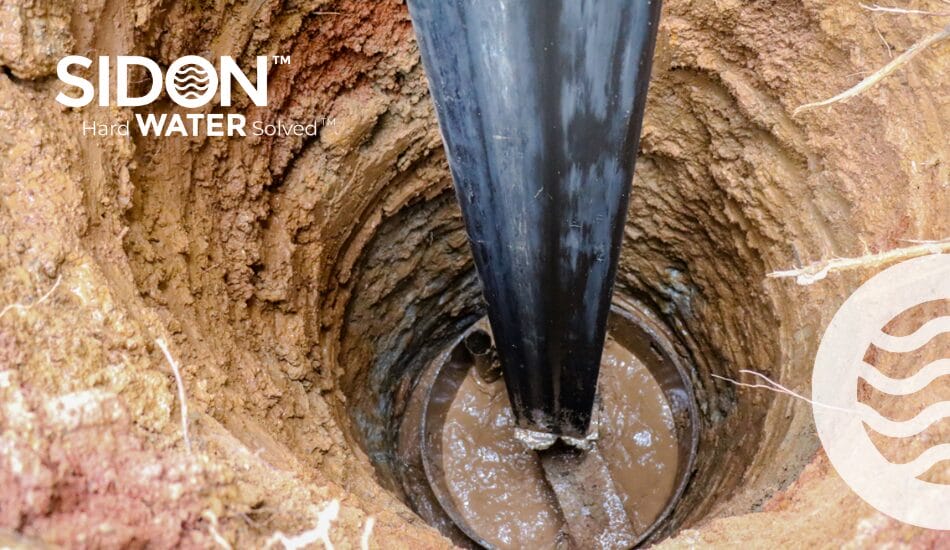In commercial environments, the use of borehole and well water is common due to its cost-effectiveness and availability. However, this water often presents significant challenges, particularly regarding hardness and inconsistent quality.
These issues can lead to operational inefficiencies and increased maintenance costs. Understanding these challenges and exploring advanced solutions, such as electrochemical water restructuring, is essential for maintaining efficient and reliable commercial operations.
Understanding Water Hardness
Water hardness, caused by high levels of dissolved calcium and magnesium ions, poses several problems in commercial settings. Hard water is not directly harmful to health, but it can cause significant operational and maintenance issues.
The Nature of Hard Water
- Calcium and Magnesium Ions: These minerals are dissolved as water passes through mineral-rich geological formations, resulting in hard water.
- Temporary vs. Permanent Hardness: Temporary hardness is caused by bicarbonates. Permanent hardness, due to sulphates and chlorides, requires chemical or physical treatment to remove.
Impact of Hard Water
1. Equipment Efficiency: Hard water leads to limescale build-up in boilers, cooling towers, and other machinery, reducing efficiency and increasing energy consumption.
2. Maintenance Costs: Frequent descaling and cleaning are required to prevent damage and maintain operational efficiency, leading to higher maintenance costs.
3. Product Quality: In industries such as food and beverage, pharmaceuticals, and manufacturing, water quality directly affects product quality. Hard water can compromise the integrity of the final product.
Inconsistent Nature of Borehole and Well Water
The quality of borehole and well water can vary significantly due to geological and environmental factors, complicating its use in commercial applications.

Factors Contributing to Borehole and Well Water Inconsistency:
1. Geological Variations: Different geological formations have varying mineral compositions, leading to fluctuations in water hardness and quality.
2. Seasonal Changes: Seasonal variations can affect water tables and mineral concentrations, leading to inconsistent borehole and well water quality.
3. Human Activities: Agricultural runoff, industrial discharges, and other human activities can introduce contaminants, altering water quality unpredictably.
Implications of Inconsistent Water Quality:
1. Treatment Challenges: Variable water hardness and contaminant levels complicate the selection and efficiency of water treatment methods.
2. Operational Disruptions: Fluctuating water quality can lead to unexpected maintenance and operational interruptions.
3. Regulatory Compliance: Inconsistent water quality can make it challenging to meet industry-specific water quality standards and regulations.
Water Softening: Limitations in Commercial Environments
Water softening is a common solution for managing hard water, but it has limitations, especially for borehole and well water used in commercial settings.

Common Water Softening Methods
1. Ion Exchange: This method replaces calcium and magnesium ions with sodium or potassium ions using a resin bed.
2. Reverse Osmosis: This process removes dissolved minerals by forcing water through a semi-permeable membrane.
3. Chemical Additives: Adding chemicals such as polyphosphates can prevent scale formation.
Limitations of Water Softening
1. High Costs: Water softening systems, particularly ion exchange and reverse osmosis, can be expensive to install and maintain.
2. Environmental Concerns: Ion exchange systems produce brine waste, which can contribute to environmental pollution.
3. Variable Effectiveness: The fluctuating nature of borehole and well water means that water softening systems may not consistently deliver optimal results, requiring frequent adjustments.
The Integro™ – Electrochemical Water Restructuring: A Modern Solution
Electrochemical water restructuring (ECWR) is an innovative method that can effectively address the challenges of hard water in commercial environments. This technology offers several advantages over traditional water softening methods.
How Electrochemical Water Restructuring Works
ECWR uses an electric field to alter the physical and chemical properties of water, preventing scale formation and improving water quality. The process involves:
1. Energy: Water passes through the Integro™, where energy (in the form of electrons) induces chemical reactions that modify the structure of dissolved minerals.

2. Restructuring: The energy field changes the structure and charge of mineral ions, preventing them from forming scale on surfaces, breaking them down and leaving them in a neutral form.
3. Continuous Operation: The Integro™ operates continuously, providing consistent water quality without the need for frequent maintenance.
Benefits of Electrochemical Water Restructuring
1. Effective Scale Prevention: The Integro™ prevents limescale build-up more effectively than traditional softening and water conditioning methods, enhancing equipment efficiency and lifespan.
2. Cost-Effective: Lower operational and maintenance costs compared to traditional water softening systems.
3. Environmentally Friendly: ECWR does not produce brine waste, reducing environmental impact.
4. Consistent Performance: Unlike traditional softeners, the Integro™ can handle fluctuations in water quality, providing consistent results.
Practical Solutions for Managing Borehole and Well Water in Commercial Environments
Given the challenges of hardness and inconsistency in borehole and well water, adopting a holistic approach to water management is crucial in commercial settings.
1. Regular Monitoring and Testing
Implementing a robust water quality monitoring program is essential. Regular testing helps identify fluctuations in water quality and contaminant levels, allowing for timely adjustments to treatment methods.
2. Integrated Treatment Systems
Combining multiple treatment methods can provide comprehensive solutions. For example, pre-filtration to remove sediments followed by electrochemical water restructuring can enhance water quality.
3. Sustainable Practices
Promoting water conservation and sustainable use practices can help mitigate the impact of human activities on water quality. Encouraging the use of eco-friendly cleaning products and reducing industrial runoff are examples of sustainable practices.
Conclusion
Managing borehole and well water in commercial environments presents unique challenges, particularly concerning hardness and inconsistency. Understanding these challenges and exploring advanced solutions, such as the Integro electrochemical water restructuring technology, is essential for maintaining efficient and reliable operations. By implementing regular monitoring, integrated treatment systems, and sustainable practices, commercial entities can address the complexities of borehole and well water, ensuring reliable access to high-quality water. Investing in these strategies not only enhances water quality but also contributes to the long-term sustainability and efficiency of commercial operations.
If you want to learn more about Sidon Water’s electrochemical water restructuring technology for borehole and well water, please click here to book a call with our team.
